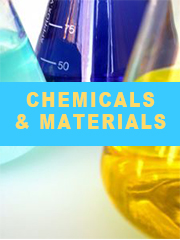Report overview
Elastomeric Foam is characterized by fine closed cell structure thus achieving high moisture resistance and low thermal conductivity. It has high flexibility and elasticity. The main advantage is that the products of this material are self-extinguished, do not support combustion and does not emit dripping particles. No rot, no decay, do not create possibilities for the development of microorganisms.
This report aims to provide a comprehensive presentation of the global market for Elastomeric Foam, with both quantitative and qualitative analysis, to help readers develop business/growth strategies, assess the market competitive situation, analyze their position in the current marketplace, and make informed business decisions regarding Elastomeric Foam. This report contains market size and forecasts of Elastomeric Foam in global, including the following market information:
Global Elastomeric Foam Market Revenue, 2018-2023, 2024-2029, ($ millions)
Global Elastomeric Foam Market Sales, 2018-2023, 2024-2029, (MT)
Global top five Elastomeric Foam companies in 2022 (%)
The global Elastomeric Foam market was valued at US$ 1821.2 million in 2022 and is projected to reach US$ 2831.6 million by 2029, at a CAGR of 6.5% during the forecast period. The influence of COVID-19 and the Russia-Ukraine War were considered while estimating market sizes.
Global Elastomeric Foam key players include Armacell, L?Isolante K-Flex, Kaimann GmbH, Aeroflex, NMC SA, etc. Global top five manufacturers hold a share about 80 %.
Europe is the largest market, with a share about 40%, followed by North America and China, both have a share about 40 percent.
In terms of product, NBR Foam is the largest segment, with a share about 75%. And in terms of application, the largest application is HVAC, followed by Automotive.
We surveyed the Elastomeric Foam manufacturers, suppliers, distributors and industry experts on this industry, involving the sales, revenue, demand, price change, product type, recent development and plan, industry trends, drivers, challenges, obstacles, and potential risks.
Total Market by Segment:
Global Elastomeric Foam Market, by Type, 2018-2023, 2024-2029 ($ Millions) & (MT)
Global Elastomeric Foam Market Segment Percentages, by Type, 2022 (%)
NBR Foam
EDPM Foam
Others
Global Elastomeric Foam Market, by Application, 2018-2023, 2024-2029 ($ Millions) & (MT)
Global Elastomeric Foam Market Segment Percentages, by Application, 2022 (%)
HVAC
Automotive
Electrical and Electronics
Construction
Others (Consumer Goods and Industrial Goods)
Global Elastomeric Foam Market, By Region and Country, 2018-2023, 2024-2029 ($ Millions) & (MT)
Global Elastomeric Foam Market Segment Percentages, By Region and Country, 2022 (%)
North America
US
Canada
Mexico
Europe
Germany
France
U.K.
Italy
Russia
Nordic Countries
Benelux
Rest of Europe
Asia
China
Japan
South Korea
Southeast Asia
India
Rest of Asia
South America
Brazil
Argentina
Rest of South America
Middle East & Africa
Turkey
Israel
Saudi Arabia
UAE
Rest of Middle East & Africa
Competitor Analysis
The report also provides analysis of leading market participants including:
Key companies Elastomeric Foam revenues in global market, 2018-2023 (Estimated), ($ millions)
Key companies Elastomeric Foam revenues share in global market, 2022 (%)
Key companies Elastomeric Foam sales in global market, 2018-2023 (Estimated), (MT)
Key companies Elastomeric Foam sales share in global market, 2022 (%)
Further, the report presents profiles of competitors in the market, key players include:
Armacell
Zotefoams
L?isolante K-Flex
Kaimann
Huamei Energy-Saving Technology
Durkee
Aeroflex
NMC SA
Outline of Major Chapters:
Chapter 1: Introduces the definition of Elastomeric Foam, market overview.
Chapter 2: Global Elastomeric Foam market size in revenue and volume.
Chapter 3: Detailed analysis of Elastomeric Foam manufacturers competitive landscape, price, sales and revenue market share, latest development plan, merger, and acquisition information, etc.
Chapter 4: Provides the analysis of various market segments by type, covering the market size and development potential of each market segment, to help readers find the blue ocean market in different market segments.
Chapter 5: Provides the analysis of various market segments by application, covering the market size and development potential of each market segment, to help readers find the blue ocean market in different downstream markets.
Chapter 6: Sales of Elastomeric Foam in regional level and country level. It provides a quantitative analysis of the market size and development potential of each region and its main countries and introduces the market development, future development prospects, market space of each country in the world.
Chapter 7: Provides profiles of key players, introducing the basic situation of the main companies in the market in detail, including product sales, revenue, price, gross margin, product introduction, recent development, etc.
Chapter 8: Global Elastomeric Foam capacity by region & country.
Chapter 9: Introduces the market dynamics, latest developments of the market, the driving factors and restrictive factors of the market, the challenges and risks faced by manufacturers in the industry, and the analysis of relevant policies in the industry.
Chapter 10: Analysis of industrial chain, including the upstream and downstream of the industry.
Chapter 11: The main points and conclusions of the report.
